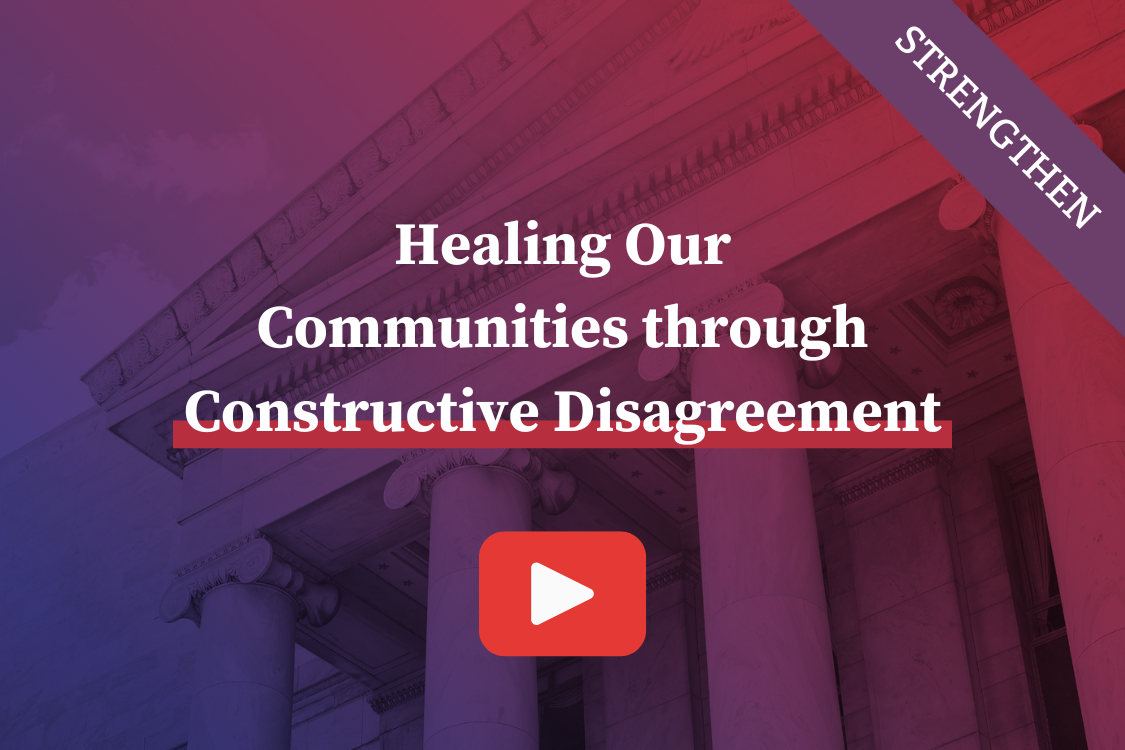Guardrails & the Guard
This November 6, 2025 webinar discusses recent National Guard deployments in the context of democratic norms. Hear about practical pathways for civic engagement and dialogue in your community.
JPD 2.0 and Ignition Grants Kickoff Event
This webinar on October 28, 2025 relaunched the Jewish Partnership for Democracy (JPD).
Nonviolent Action Tactics from Tactics4Change
This database from Tactics4Change contains hundreds of completed nonviolent action tactics, representing a wide range of struggles for positive change.
Healing Our Communities through Constructive Disagreement: Building Bridges Across Differences
This interactive webinar, hosted in partnership with Pardes Institute of Jewish Studies and facilitated by Sefi Kraut, draws on ancient Jewish wisdom and the latest social science to help Jewish professionals facilitate constructive dialogue across differences within our communities.
Drashing Democracy 2025
This August 6, 2025 provided sources, perspectives, and practical approaches for addressing challenges to American democracy from the pulpit. This program was planned in partnership with A More Perfect Union: The Jewish Partnership for Democracy, Central Conference of American Rabbis, Rabbinical Assembly, Reconstructionist Rabbinical Association, T’ruah: The Rabbinic Call for Human Rights and Torat Chayim.
Your Feed, Your Future: A Jewish Teen’s Guide to Media & Democracy
Today, teens are bombarded with information, and it can be really hard to know what is true and what is not. In this June 8, 2025 webinar, Jewish teens learned how to tell fact from fiction online. Middle and high school students will met with expert Pam Brunskill from the News Literacy Project and learned how to effectively identify and counter misinformation.
5 Things Synagogues and Jewish Nonprofits Should Know to Protect Their 501(c)(3) Status
This one-page guide outlines 5 key things synagogues and Jewish nonprofits should know to safeguard their 501(c)(3) status.
Nonprofit Toolkit: Resources for organizations facing government investigations
Protect Democracy’s toolkit offers best practices for responding to politicized government investigations so that organizations can keep doing lawful, mission-based work.
Scenario Planning Worksheet
This resource provides leaders of Jewish organizations with guidance for thinking through potential threats to democracy and how their institutions can best prevent and respond to them.
Rapid Communications Around Threats to Democracy: A Guide for Jewish Organizations
This resource provides rapid communications guidance on whether and how Jewish organizations should respond to anti-democratic activity.
Online Harassment Field Manual
Whether you’re experiencing or witnessing online abuse, this Field Manual offers concrete strategies for how to defend yourself and others.
DIY Scenario Planning Guide
This resource helps leaders of Jewish organizations develop democracy threat scenarios to practice how their institutions might respond to different threats.
Digital Security Helpline
The Helpline will walk you or your organization through assessing the risks you face in your work and
prioritizing your digital security needs. It will help you resolve existing problems, teach you some of the most important best practices, and help you get into a secure mindset for the future.
Cybersecurity Assessment Tool
This tool is designed to measure the maturity, resiliency, and strength of an organization’s cybersecurity efforts. It was created with civil society organizations and nonprofits in mind, and we hope it helps shine some light on a recommended path forward for any organization undertaking a cybersecurity journey.
A Meditation for Partners
This brief meditation, led by Rabbi Josh Feigelson, President and CEO of the Institute for Jewish Spirituality, is meant to help Jewish leaders center and find focus when engaging in work to protect and strengthen democracy.
UPDATED FOR 2025: Equip Toolkit
This comprehensive resource, updated for 2025, provides essential information and action guides to assist Jewish organizations with leading their communities effectively through contentious times.


















